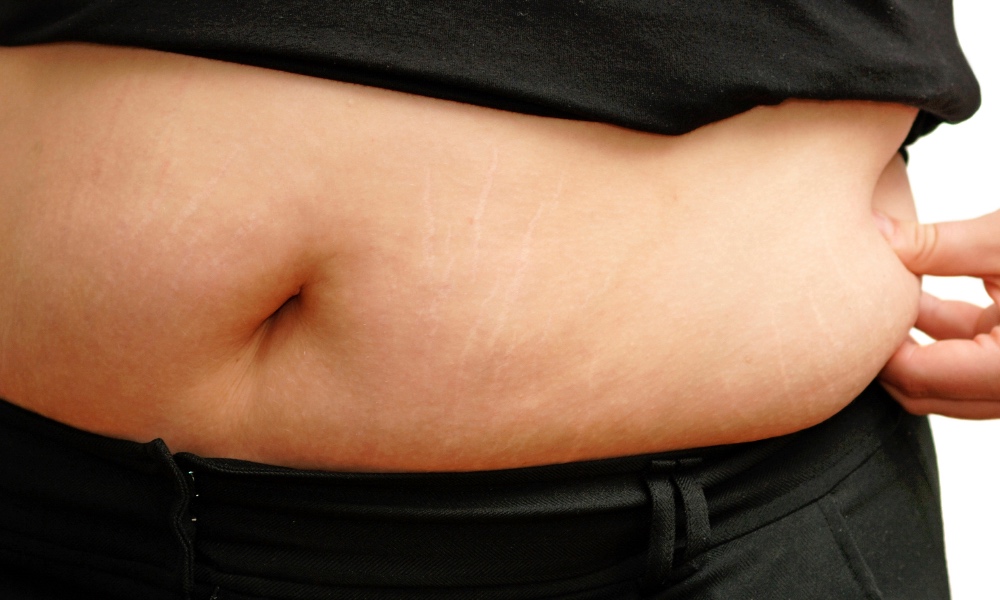Most of us can recall when we could eat anything we wanted to and not gain weight. Our metabolism was in high gear — until it wasn’t anymore. And then the scale creeped upward and our pants size got larger. You may have noticed the change in your late twenties, a time when scientists believed your body’s metabolism had peaked and was beginning to slow down.
Unfortunately, you may no longer be able to blame middle-age spread on a slower metabolism. A recent study provides some unexpected twists to this narrative.
Metabolism is the rate at which your body burns calories. Anywhere from 50 to 70 percent of the calories our bodies use each day to keep us alive — calories to keep our heart beating, to digest our food, to maintain our immune system, etc. Past studies have mostly looked at the calories used by only those vital functions. How many calories we use doing everything else like working out, doing laundry, walking the dog or just thinking varies from person to person and is harder to track.If you’re gaining weight in your fifties, a slower metabolism is probably not the main culprit.
An international group of researchers undertook a study of calorie usage in 6,600 people who ranged from one week old to 95 years old. Using a urine test that is considered the gold standard for calculating the calories burned in day-to-day living, multiple labs pooled their results into a single database in an effort to more closely analyze energy expenditure across the entire lifespan. Their results contained a lot of surprises.
Infants typically triple their birth weight by their first birthday, so it was no surprise to find that by weight, infants had the highest metabolic rates. However, their calorie needs increase so much during their first year that by the end of that year they are 50 percent greater for their body size than those of an adult. Even when the researchers controlled for infants’ fast growth, their rate of calorie burn was higher than what would be expected for their body size and composition.
As Pontzer put it, “Something is happening inside a baby’s cells to make them more active, and we don't know what those processes are yet.”
After the first year of life, metabolism decreased by about three percent a year until the 20s when it stabilized.A person in their 90s requires about 25 percent fewer calories than a middle-aged person.
Surprisingly and despite the long-held belief that puberty is a time of greater calorie needs, the findings didn’t show any increase in daily calorie needs during the teen years, in spite of growth spurts, once body size was taken into account.
While we like to blame a slower metabolism on our widening waistlines as we age, another surprise emerged. Calorie usage was the most stable during a person’s 20s, 30s, 40s and into their 50s. And the researchers report that a pregnant woman’s calorie needs did not increase.
These patterns of metabolism held true even when different levels of physical activity were considered.
It was not until after the age of 60 that metabolism started to slow down, but at very gradual reduction of less than one percent a year. A person in their 90s requires about 25 percent fewer calories than a middle-aged person. The loss of muscle mass, which accompanies aging, is one of the reasons for the lower requirement. Muscle burns calories more efficiently than fat, so as muscle mass dwindles, seniors need fewer calories. But the bigger reason, researchers believe, is that our cells are slowing down.
All of this, according to Pontzer, “… points to the conclusion that tissue metabolism, the work that the cells are doing, is changing over the course of the lifespan in ways we haven’t fully appreciated before.”
More research is needed to fully understand what these new findings reveal about human metabolism and the best way to apply them to weight management and nutrition throughout the life cycle. One thing remains clear, however — if you’re gaining weight in your fifties, a slower metabolism is probably not the main culprit. More likely, you're eating too much and exercising too little.
The study is published in Science.





